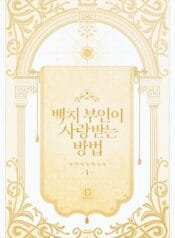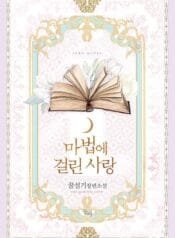Perhaps it was because of the serious injury she had suffered when she was eighteen. Since then, she had always felt as though her memory had declined noticeably.
However, after arriving in the New Continent, she hadn’t been particularly unhappy, so there had never really been a need to delve deeply into her old memories.
Setting aside her homesickness, if someone were to ask whether she had truly been happy in her homeland, it would be a difficult question to answer.
Everyone said her life was perfect. There were days when people flattered her by saying that the term ‘Hardrian Rose’ existed solely for her.
But Cordelia knew those words were a lie. After all, the name ‘Cordelia’ had been passed down through the generations to the eldest daughter of each generation of the Count’s family — she was merely the tenth.
Those who came before her had mostly lived and died in similar ways. Although they were all celebrated for their beauty and grace, most had died of puerperal fever due to poor sanitation in their time.
Her grandaunt, the ninth Cordelia, was also known as the Hadrian Rose. It was said that she was the most beautiful woman of her time and the object of every man’s desire.
The ninth Cordelia did indeed become a duchess, but she died young from puerperal fever. The child she gave birth to also died, and the duke remarried soon afterwards.
And just like that, no one spoke of the ninth Cordelia anymore. Attention simply shifted to the tenth Cordelia, the Cordelia of today. Everyone said that she would go on to live an even more perfect and beautiful life.
But Cordelia couldn’t help thinking:
‘If I, too, am to live a life no different from those who came before me… then doesn’t that mean I don’t even need to exist as myself?’
Protecting the family’s honour was, of course, an incredibly important duty, but what was the point of her being born if that was all she was expected to do?
However, when her father died and her mother had no one else to rely on, she stopped asking these questions.
“Cordelia, get a hold of yourself. Men don’t like women who think too much.”
“If the Duke of Berkeley loves me, wouldn’t he treasure me just as I am?”
“Don’t be silly, child. Men may enjoy a bit of flirtation, but when it really matters, they want a woman who knows how to give in.”
“……”
“You’re lovely, so just grow up as you are. You’re marrying with the count’s name as your dowry—there’s no need to do anything foolish now.”
The term ‘foolishness’ was used to describe her for taking an interest in anything beyond the narrow role expected of her.
Cordelia’s globe was thrown away when she was eight. When she was ten, the world map showing remote regions was burned in the incinerator.
She was not allowed to have philosophy books or other thick tomes in her room.
As for musical instruments, she was only allowed to play simple pieces. Anything too perfect would be met with mockery — she would be labelled fussy and troublesome.
The same applied to painting.
Dancing was the only exception, but even then, if she danced for more than five songs, she would quickly be labelled ‘a woman throwing herself at men’.
To be passionate about something was considered utterly vulgar. The Hardrian Rose had to be perfect—just enough to be charming, nothing more.
But she had grown up looking out over the vast expanse of the Hastings Downs. Depending on the season, buttercups would bloom profusely there and veil-like rain clouds would drift through the afternoons, leaving the grass greener in their wake.
At sunset, the shadows of towering oak trees would swallow the old castle, and white, jewel-like stars would cluster together in the night sky like mist.
Cordelia loved riding horses without a saddle across that land. Galloping through the gentle breeze on her beloved horse made her feel as though she could finally breathe again.
But her fiancé, Clement Berkeley, absolutely loathed her one and only joy: horse riding.
“Cordelia, how can a lady appear in such vulgar attire?”
“…Riding pants like these are quite popular now. Even in the capital, there are women who wear them.”
“How foolish. Change into something more modest. You can ride in a side-saddle position, can’t you?”
“But that hurts my back—”
“Cordelia, should I speak to your mother about this?”
“……”
She hesitated for only a moment. On that same day, however, her beloved horse was put down.
As there was no male heir in the count’s family, marrying into the duke’s household was the best way to uphold the family’s honour.
She had been taught that this was her only possible future.
Her mother would never tolerate anything that might jeopardise it.
“Don’t even think about crying, Cordelia. You should’ve just listened to your fiancé.”
“Mother…”
“If you had obeyed him, would he really have killed the horse just to impress the duke? Of course not. Besides, it wasn’t even a horse from a good bloodline.”
Mother, I loved that horse, pedigree notwithstanding. It stayed with me, and when I was lonely, it pressed its forehead against mine. That alone gave it meaning.
But Cordelia swallowed those words along with her tears over the horse that had died because of her.
“…Yes. I was wrong. I won’t do it again.”
She stopped riding after that. Even looking at horses became too painful, so she avoided them.
In this way, she slowly began to learn how to submit.
As part of her training to become a proper noblewoman, she devoted herself to charitable work on the estate.
At least that was something that neither her mother nor her fiancé could forbid her from doing.
Cordelia had learned how to surrender, but not how to give up. This is why, one day while distributing bread from the Count’s manor to the poor, she saw the boy.
Despite the long line of people waiting for rations, she was drawn to a particular boy who was thin and clearly younger than her.
‘There he is again.’
Her memory was hazy, and his face seemed veiled in mist. After all, he was just a street boy; she vaguely remembered seeing smudges of soot on his face.
But one thing she did remember clearly was how beautiful his eyes had been. She couldn’t remember their colour, only that they had made an impression.
What happened next, however, she remembered with perfect clarity.
The boy collected the bread he had been given and sold it on at double the price. It was a reckless act. He was young, though, so of course he was caught by the guards. They charged him with stealing property from the Count’s manor and prepared to cut off his wrist.
Thankfully, her mother had been away that day. Had she been there, the guards would probably have contacted her immediately, claiming to need ‘Lady Cordelia’s permission’, as they often did.
When she arrived at the station, the boy was in a cell, tied up and kicking out wildly.
“Hey! Let me go! I said let go! I was just trying to survive, so stop being so stingy!”
His cheek was blotchy, probably from being slapped by a guard, yet he was still full of fight. Why had she been so captivated by the sight in that moment that she had made a decision on the spot?
Half-dazed, Cordelia had spoken to the boy.
“…Would you rather lose a hand, or become a servant?”
“…What?”
“I don’t have much time, so I’d appreciate a quick answer.”
That was how she met Luke Davis.
***
After that, Luke became a low-ranking servant—a page boy—in the Hastings estate.
Cordelia was fifteen; he was fourteen.
With over a hundred servants, sneaking in one more while her mother was away didn’t raise much suspicion.
And the boy turned out to be very clever. Not that it was surprising, considering he had the wits to resell bread on the streets.
“Luke, I’ll read you this poem today.”
Cordelia would give the boy, who stood quietly by the window, various books. Books she could no longer keep—philosophy texts, Latin readers, geography books with maps, and more.
Her fiancé, Clement Berkeley, would scold her the moment she so much as laid a finger on anything that seemed even slightly too difficult, as if her curiosity itself were a nuisance.
“Cordelia, you’re supposed to be a pretty wife for me. Do you know how ugly you look when you frown trying to read those tiny letters?” And don’t even get me started on women with glasses. Do you know how unattractive that is?”
So even though her tutor once praised her for her talent in literature, the curriculum always remained fixed to the bare minimum expected of a noblewoman.
But instead of letting those precious books go to waste, she gave them to someone who truly needed them. And each time, she would call for the young servant boy who was just a year younger than her.
And sometimes, she would recite her favorite poem to him.
“Then the fog rolled in, and the snow began to fall.
The weather turned shockingly cold,
And an iceberg, as tall as a mast, came drifting near.
Its color—like a shimmering blue emerald.”
“You must really like that poem, my lady. It’s what—your fifth time reciting The Old Sailor’s Song? My ears are starting to blister from hearing it so much.”
“Hmph. Then you must have it memorized by now, right? It’s a seven-part series, you know.”
“Hah, of course I do.”
The boy’s voice reciting poetry from beyond the window was like a mirage in the warm afternoon sunlight.
And he truly had memorized the entire epic.
He was frighteningly smart…
Eventually, the soothing voice telling the tale of the old sailor’s adventure faded, and the boy quietly looked at her again.
“But… do you want to leave, my lady? You never read love poems—only this one, every time.”






